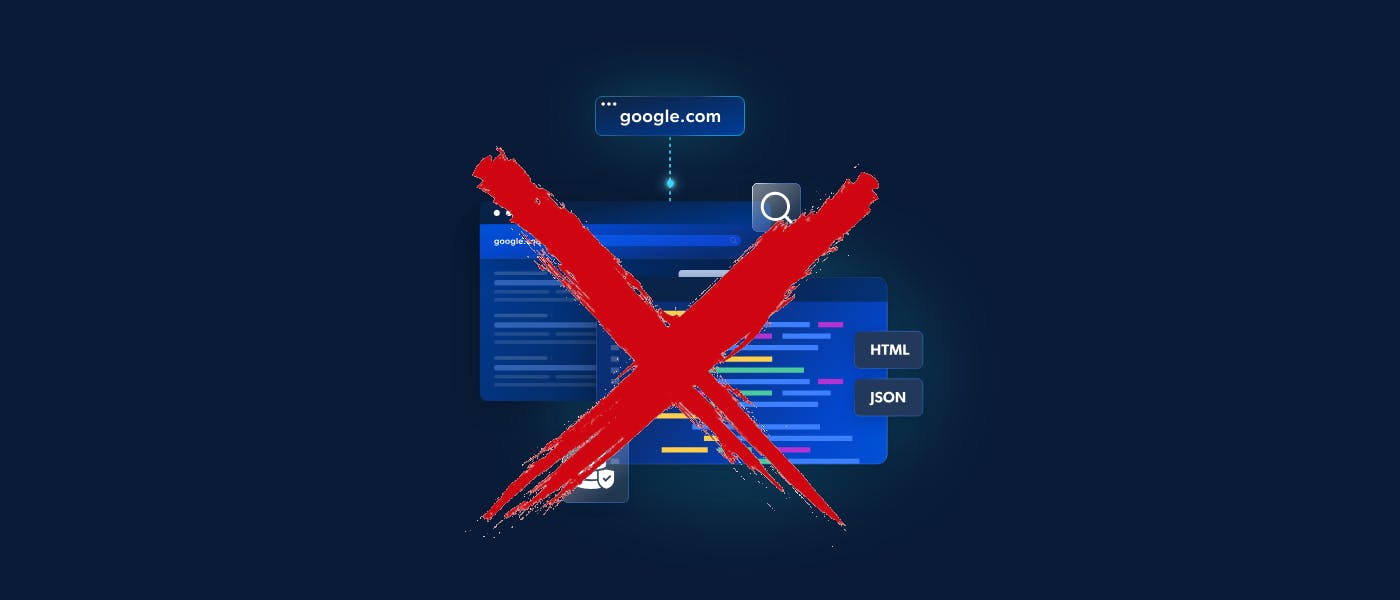🚨 Breaking News: Google now requires JavaScript to perform searches!
Yes, you read that right—your trusty old automated SERP bot relying on HTTP clients and HTML parsers? 🛑 Completely busted. This shake-up has wreaked havoc on countless SEO tools, causing data delays, outages, and a buffet of service meltdowns.
But why did this happen? What could be Google’s reason behind the change, and how can you deal with it? Were all tools affected? Most importantly, what’s the solution? 🤔
Time to find out!
What’s the Deal with Google Requiring JavaScript to Perform Searches? Here’s What You Need to Know!
On the night of January 15th, Google pulled the trigger on a major update to how it handles and tolerates automated scripts. 🤖
🕵️ The culprit? JavaScript!
JavaScript execution is now mandatory to access any Google search page. Without it, you’re met with what some users have dubbed the “Scriptwall”—a block page that laughs in the face of old-school bots. 😅
The result? Full-scale confusion—rank trackers, SERP data tools, and SEO services everywhere either stopped working entirely or began experiencing outages and data lags. 💥
As Google shared in an email to TechCrunch:
“Enabling JavaScript allows us to better protect our services and users from bots and evolving forms of abuse and spam”
The reason behind this move? According to the same spokesperson, on average, “fewer than .1%” of searches on Google are done by users who disable JavaScript.
Sure, that makes sense and 0.1% seems like a tiny number—until you remember it’s Google. 😲
We’re talking about millions of searches. And guess what? A huge chunk of that sliver likely comes from SEO tools, web scraping scripts, and data aggregation services!
So, is this a direct swipe at SEO tools? Why now, and what’s the real story? Let’s dive in and find out! 🧐
TL;DR: Nah, not really. Google probably did this to protect against LLMs, not SEO tools.
As Patrick Hathaway, co-founder and CEO of Sitebulb, pointed out on LinkedIn, this isn’t likely to be an attack on SEO tools:
These products have been around since the early days of search engines and don’t really harm Google’s business. But large language models (LLMs) might!
It’s no surprise that ChatGPT and similar services are emerging as rivals to Google, changing the way we search for information. Patrick’s point makes sense, although it’s still unclear exactly why Google made these changes, as the company hasn’t released an official statement. 🤷
The “Scriptwall” move isn’t about blocking web scraping—it’s about protecting Google’s ranking system from new competitors (hello, AI companies…).
Google is making it harder for these competitors to cite pages and use SERP data, forcing them to build their own internal PageRank systems instead of comparing their results to Google’s. ✋
SEO Data Outage: The Fallout of Google’s Latest Scraping Crackdown
The fallout from Google’s new policies is straightforward: Many SEO tools are struggling, going offline, or facing major outages and downtimes. 📉
Users are reporting serious data lags in tools like Semrush, SimilarWeb, Rank Ranger, SE Ranking, ZipTie.dev, AlsoAsked, and likely others caught in the chaos. It’s safe to say most players in the SEO game felt the hit. 🎯
If you check X, you’ll find plenty of comments from frustrated users alike and updates from industry insiders:
A side effect of Google’s SEO changes? The struggle to scrape accurate SERP data might be messing with how SEO tools track rankings—leading to potentially unreliable results.
📊 Don’t believe it? Just look at the SEMrush Volatility Index after January 15th:
That sudden spike is hard to ignore. 😱 Was it because of SEO tracking issues or some other changes in Google’s algorithms? Tough call…
Headless Browsers as the Answer to Google’s New “Scriptwall”
If you’ve checked out our advanced web scraping guide, you probably already know what’s the fix here.
The answer? Just switch to automated browser tools that can execute JavaScript—tools that let you control a browser directly. After all, requiring JavaScript on web pages isn’t exactly a real blocker (unless Google pairs that with some serious anti-scraping measures 🛡️).
Well, if only it was that easy…
Switching from an HTTP client + HTML parser setup to headless browsers like Playwright or Selenium is easy. The real headache? Browsers are resource-hungry monsters, and browser automation libraries just aren’t as scalable as lightweight scripts parsing static HTML.
⚖️ The consequences? Higher costs 💸 and tougher infrastructure management for anyone scraping SEO data or tracking SERPs.
🏆 The real winners? AWS, GCP, Azure, and every datacenter powering these heavyweight scraping setups.
😬 The losers? The end users! If you don’t choose the right SEO tool, prepare for price hikes, more frequent data lags, and—yep—those dreaded outages.
How Bright Data’s SERP API Dodged Major Outages
While many SEO tools were thrown off by Google’s changes, Bright Data stayed ahead of the curve. 💪
How? Our advanced unlocking technology and rock-solid architecture were designed to handle complex challenges like this. Google isn’t the first to require JavaScript rendering for data extraction. While other SEO tools—focused solely on Google—scrambled to build JS rendering from scratch, we simply adapted our SERP scraping solution to leverage the robust unlocking capabilities we already had in place for hundreds of domains. 🌟
Thanks to a top-tier, dedicated engineering team specializing in web unlocking, we quickly addressed this fallback. Sure, the update threw the industry for a loop and caused some outages, but Bright Data’s response was lightning-fast: ⚡
As you can see, the outages were brief—lasting only a few minutes. In under an hour, our team of scraping professionals restored full functionality to Bright Data’s SERP API.
Bright Data’s web unlocking team kicked into high gear, stabilizing operations at lightning speed while keeping performance rock-solid without inflicting additional costs on users—a critical factor as many of our existing users started shifting 2-5x more traffic our way to meet their demands. 💼
How did we pull it off? 🕒 With our advanced alert system, high request scalability, and a dedicated R&D team working around the clock, we had it fixed before any other SEO platform could react—and well before customers even noticed! 🤯
This is the power of working with a company that goes beyond basic SERP scraping. With world-class scraping tools, professionals, and infrastructure, Bright Data ensures the availability and reliability of its products! 🔥
No surprise here—Bright Data’s SERP API ranked #1 in the list of the best SERP API services! 🏆
Want to know more? Watch the video below:
Summary
Google has just rolled out some major changes that have shaken up the way bots scrape and track SERP data. JavaScript execution is now required, and this has led to outages, data lags, and other issues across most SERP tools. ⚠️
In all this chaos, Bright Data cracked the problem in under an hour ⏱️, ensuring minimal disruption and continuing to deliver top-quality SERP data.
If you’re dealing with challenges in your SEO tools or want to protect your operations from future disruptions, don’t hesitate to reach out! We’d be happy to help! 👋

















